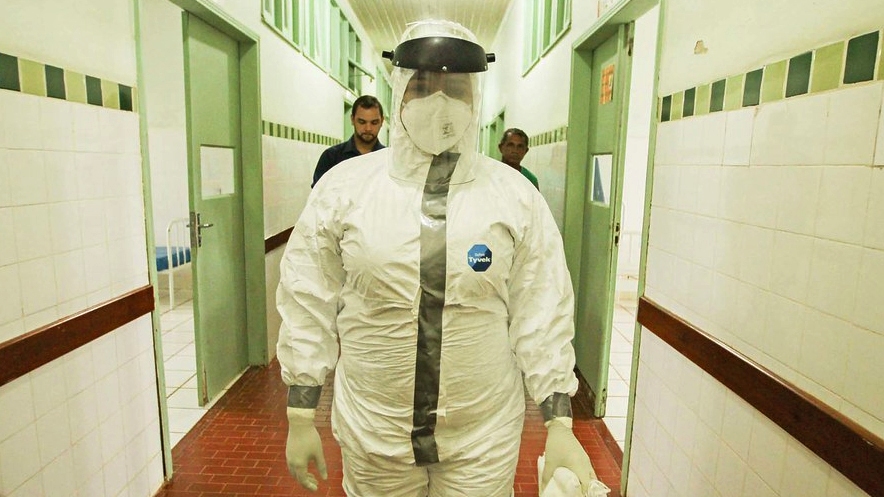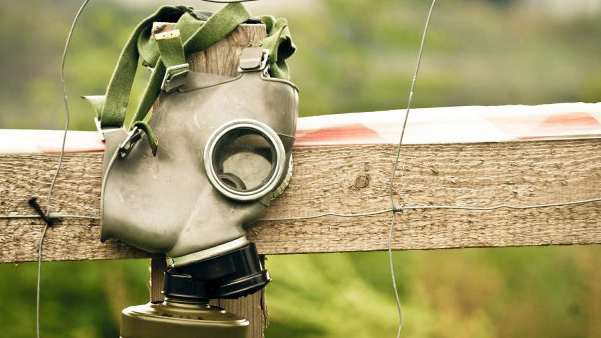Angus Tengbeh, a researcher in public health, recalls his experience of the Ebola crisis in Sierra Leone. Using his personal history, he explores the challenges and opportunities posed by the epidemic, including the rumours, stigmas and stress navigated by the public health response.
This post is part of Njala Writes, a blog series resulting from a writing workshop hosted at Njala University, Sierra Leone in June 2019, in collaboration with the LSE Firoz Lalji Centre for Africa.
Although I am from Kailahun District in eastern Sierra Leone, my early experiences in the refugee camps in Kuntaya, Kissidougo Region of Guinea are what made me want to be a medical doctor. There were cholera outbreaks in the camps, and I saw first-hand how the advice from community health workers was saving lives.
I wanted to improve the weaknesses I later saw in Sierra Leone’s health system, and I applied for a degree in public health at Njala University, where I graduated in 2014.
I submitted my dissertation in July, and immediately afterwards came the Ebola outbreak. There were a lot of conspiracy theories and rumours about the spread of the disease. In particular, people said that health workers were killing people – that they were injecting them with the Ebola virus to do so. These rumours were not new. People have said similar things since the precolonial days when minerals were being extracted by the Europeans. People have never trusted the government. The governments were implementing projects on paper, but there was no benefit to the people they were implementing them for. All of these actions were embedded; corruption was linked to the outbreaks. People were really very afraid.
When the outbreak arrived in Kailahun District, people didn’t believe that Ebola existed. There were stories about why people were dying. The first woman who died was a traditional healer, and people said this woman met a snake on her way to the stream. The snake told her to take itself home, but not to expose the snake to anybody. However, the bargain was that the snake would give her cash, water. This woman’s husband was a drunkard, who normally asked the woman for money, which she would take from a box – the same box where she kept the snake. One particular day the man wanted something to drink – but the woman was not around. He upturned the box and saw what was inside. The man died, then the entire family – that was the first family to go. This was the first incident in the community – these stories spread, people moved frequently.
People believed these stories. For them, there was nothing like Ebola. They thought it was because this man saw the snake. Normally, at that burials we stay for days with the family, and we eat together communally. We share a bowl – we have a lot of contact. This was how the disease was moving – people didn’t realise what was happening.
These rumours flourished because the treatment centres were on the outskirts of the community, and people could not see what was happening. Sick people were put in a bag. There was no grave.
When people were invited to the treatment centres to talk to their relatives, this helped them, as did people gradually seeing others survive from their time in the treatment centres. But it was fragile. From my own research I learnt that they brought a new vaccine – rubella – which people thought was Ebola. This created fear and panic. Some resisted. Meetings were organised to sensitise them.
In the same year, in Kambia, there was a plan to collect blood samples. In some communities there was strong resistance to it. People went to collect blood to test for the parasite – people perceived that the medical staff were there to harvest their blood. I realised that trust is very fragile. It is simple to be broken, difficult to build.
These stories are told in a nice way. So inshallah – even I believed them at first. But I returned to the Bo District – for the comprehensive exam. I came to prepare for it. The deaths were still occurring. My brother called me and said 15 people died the same day. I asked why were they dying? If it was the snake, people should not have been dying like that. What the government was saying is true – the ministry of health, the response workers, were telling the truth. It was indeed Ebola.
I submitted my dissertation, then I went to work for Médecins Sans Frontières (MSF) in July 2014. I worked in the treatment centre which, at that time, was very difficult. Whoever you are at the treatment centre, you experienced psychological stress. There was no treatment at first and people died. We felt two types of stigmatisation – sometimes you go into the community and the people push you away: they know where you work, they don’t want you to bring the virus. And there was a stigmatisation within yourself. There were times when I had to abandon people and stay on my own. You have that perception that you must have come into contact with the disease.
We had approximately 500 staff like me. I was in the supply team, coming into contact with several other teams to give them medical equipment and supplies. I was cautious and careful, but it was difficult. Our colleagues were also dying. One guy invited me to do an interview – that guy died in the treatment centre. We never took any satisfaction. When we had a vacancy one colleague wanted to work on the response, but I had some friends who graduated who declined, saying they did not want to work with Ebola. I did not tell my parents – I realised I am the only one who has graduated. Telling them I work in a treatment centre would have made them worried.
One time my dad visited me and an MSF vehicle dropped me home. I said I worked for them, but I never said where. I was also worried myself, but I knew I had been trained. People came there with no experience – at least I knew about infectious disease control.
I was working at MSF from July – March 2015. I finished my role because around that time the treatment centre was closing down, cases were not coming in. We had discharged our last patient. In other places like Freetown they were still recording some cases. I thought it would be better to move on. I saw an advert with MEDIA to work in Freetown to work in infection control – building their capacity in prevention. I saw that as my best fit.
There was an increase in infections among health workers, when the outbreak was dying out, and it was important to make health workers safe. We went to health centres and worked with staff in peripheral health units on infection prevention and control. They needed items, with some centres never having enough supplies. We did training, conducting on the spot visits. I then worked at the Ebola vaccine clinical trial, introducing new vaccines never tested in the country. People were altruistic, wanting to know if it would work – we were seen as heroes for the country, like sacrificial lambs so that people’s children would benefit.
When the treatment centre closed many were left jobless. Some were high school teachers, some illiterate cleaners, some business people. In Bo town, afterwards, many people were simply doing small things to keep themselves busy.
The experience of the outbreak pushed me to explore deeper the issues in my Masters in Global Health Policy. I came to realise our health system is weak. I feel the need to do something about it, which is why I went to Edinburgh to study. I know we can make more of an impact. If we have strong policies, and implement them effectively, the system will grow strong.
Photo: Agência de Notícias do Acre





